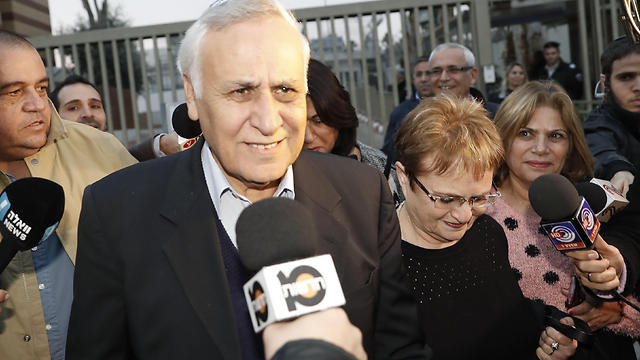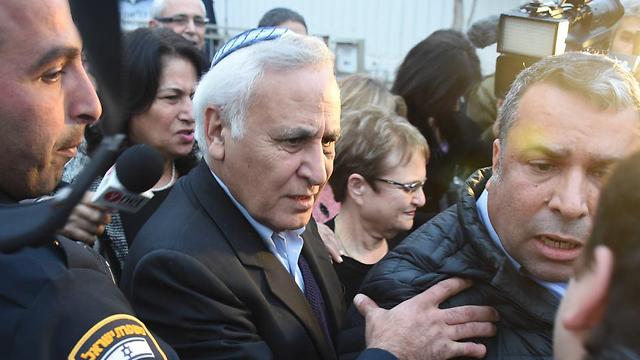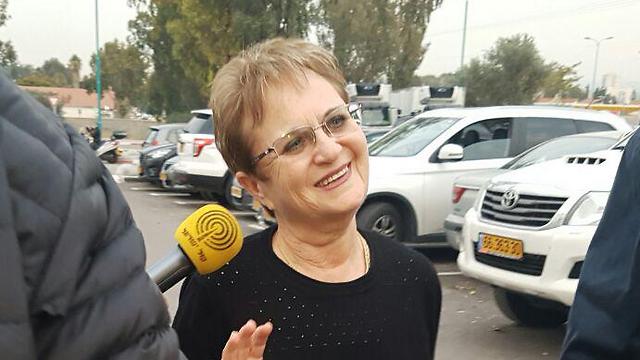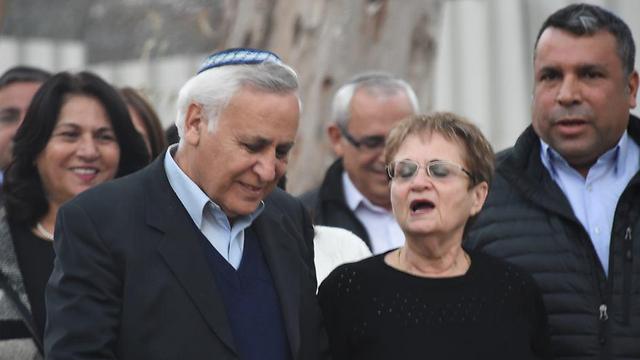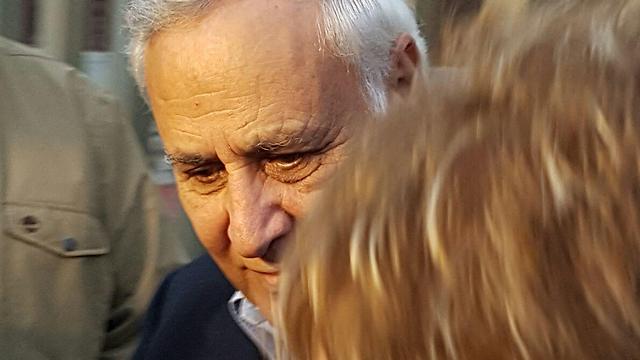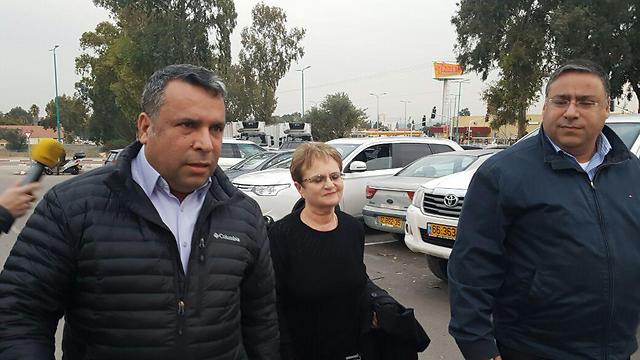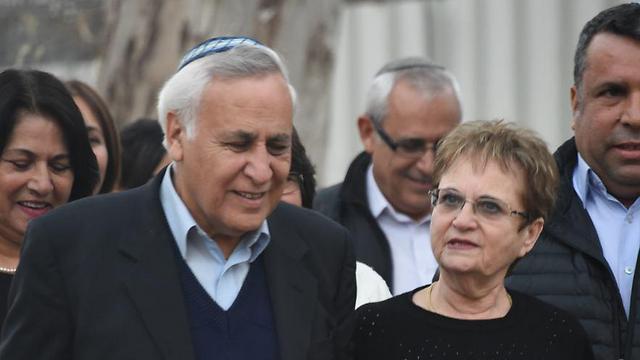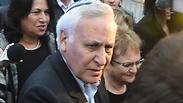
Former president Moshe Katsav, a convicted rapist, was released from prison on Wednesday afternoon after the State Attorney's Office decided against appealing the parole board's decision to grant him early release.
Katsav, who served five years and 15 days out of his seven-year sentence for rape and indecent acts, left the Maasiyahu Prison with his wife, Gila, and brother Lior.
He hugged his family members and other close associates outside the prison gate and then made his way through the mob of journalists that waited for him to the car that took him home to Kiryat Malachi.
"It's a very emotional day," Gila, Katsav's wife, said before entering the prison to accompany her husband home.
The State Attorney's Office said that after consulting with relevant officials, the state attorney decided that there was no reason to accept a petition to deny Katsav early parole, as it is unlikely that such an appeal would be accepted by the court.
The State Attorney's Office clarified that "All this is not to take away in the slightest from the severity of the convict's actions, for which the state attorney requested a very substantial prison sentence, which was eventually given to him. The State Attorney's Office and the legal system's handling of Katsav's case proves that the principle of equality in the eyes of the law is alive and fully implemented in Israel. The simple man and the president will be served the same sentence."
The Prisoner Rehabilitation Authority has prepared a detailed rehabilitation plan for Katsav to follow upon his release, which includes attending daily Torah lessons in Kiryat Malachi; attending weekly meetings of a religious treatment group; and attending weekly meetings with a psychosocial therapist.
"There is no doubt ... the prisoner underwent a change," the parole board wrote in its decision. The board said it questioned Katsav about his actions and their consequences, and was "impressed by the honesty of his answers."
In addition, Katsav will have to refrain from defaming his victims. He will not be allowed to give interviews to the media—nor will anyone else be allowed to be interviewed on Katsav's behalf.
The former president will also be barred from working in any position in which women serve as his subordinates.
The parole board also addressed Katsav's victims, saying the issue "was given an expression and was taken under consideration—during the trial, in the verdict, and in previous decisions made by the parole board. The court had its say and the prisoner was given punishment and is serving his sentence. The decision to release him or not does not take away from the contempt the board feels in light of his actions and from the grave manner in which it sees theses actions.
"Nonetheless, the board members were impressed that the prisoner has come a long way since the first board meeting, took up the gauntlet, and accepted the hand offered him by the prison's treatment officials. The prisoner now understands the meaning of his actions and the hurt he caused the women, and regrets this."
The parole board responded to public requests that Katsav must express remorse if he is to be released early, stating that it is not a formal stipulation that he do so.
The decsion has nevertheless raised the anger and incredulity of women's rights organizations, as well as survivors of sexual assault.
"The parole board made an unfortunate decision that tells women in Israel that we live in Sodom and that there is no limit to the disgrace," said Odelia Carmon in response to the decision.
Carmon had previously worked under Katsav when he served as Minister of Transportation and testified to having been sexually harassed by him.
Orit Sulitzeanu, the Director of the Association of Rape Crisis Centers in Israel, also blasted the decision to release Katsav early, saying, "The decision is outrageous and infuriating and is a slap in the face to the victims of Katsav and all victims of sexual violence."
Katsav held a series of Cabinet posts before parliament selected him to be president in 2000. The allegations against him forced him to resign in 2007, two weeks before his term was to end, paving the way for Nobel Prize Laureate Shimon Peres to assume the presidency.
Itay Blumenthal, Tova Tzimuki, Matan Tzuri, Ranan Ben-Zur, Gilad Morag and Reut Rimerman contributed to this report.















